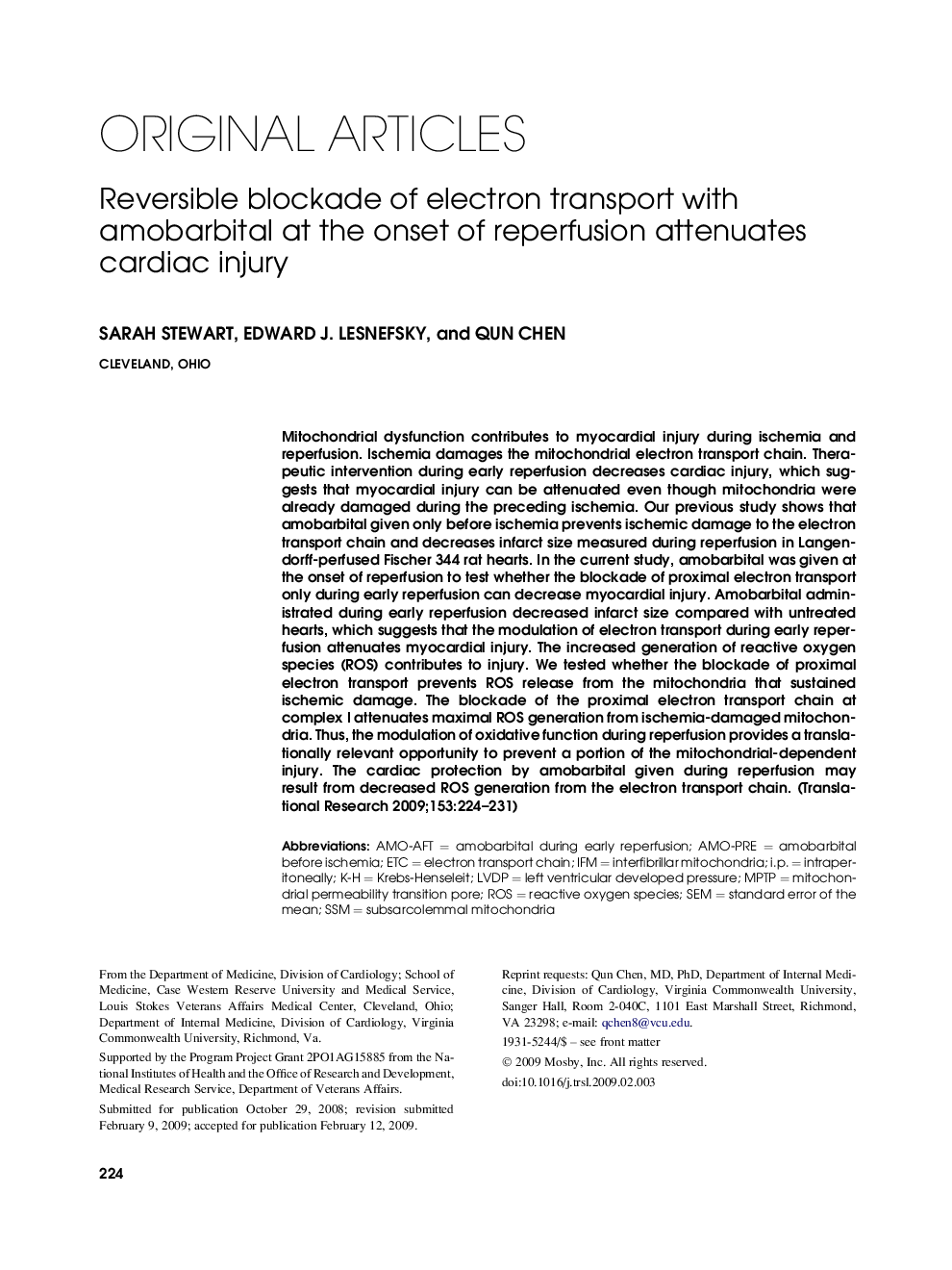| Article ID | Journal | Published Year | Pages | File Type |
|---|---|---|---|---|
| 3841124 | Translational Research | 2009 | 8 Pages |
Mitochondrial dysfunction contributes to myocardial injury during ischemia and reperfusion. Ischemia damages the mitochondrial electron transport chain. Therapeutic intervention during early reperfusion decreases cardiac injury, which suggests that myocardial injury can be attenuated even though mitochondria were already damaged during the preceding ischemia. Our previous study shows that amobarbital given only before ischemia prevents ischemic damage to the electron transport chain and decreases infarct size measured during reperfusion in Langendorff-perfused Fischer 344 rat hearts. In the current study, amobarbital was given at the onset of reperfusion to test whether the blockade of proximal electron transport only during early reperfusion can decrease myocardial injury. Amobarbital administrated during early reperfusion decreased infarct size compared with untreated hearts, which suggests that the modulation of electron transport during early reperfusion attenuates myocardial injury. The increased generation of reactive oxygen species (ROS) contributes to injury. We tested whether the blockade of proximal electron transport prevents ROS release from the mitochondria that sustained ischemic damage. The blockade of the proximal electron transport chain at complex I attenuates maximal ROS generation from ischemia-damaged mitochondria. Thus, the modulation of oxidative function during reperfusion provides a translationally relevant opportunity to prevent a portion of the mitochondrial-dependent injury. The cardiac protection by amobarbital given during reperfusion may result from decreased ROS generation from the electron transport chain.
